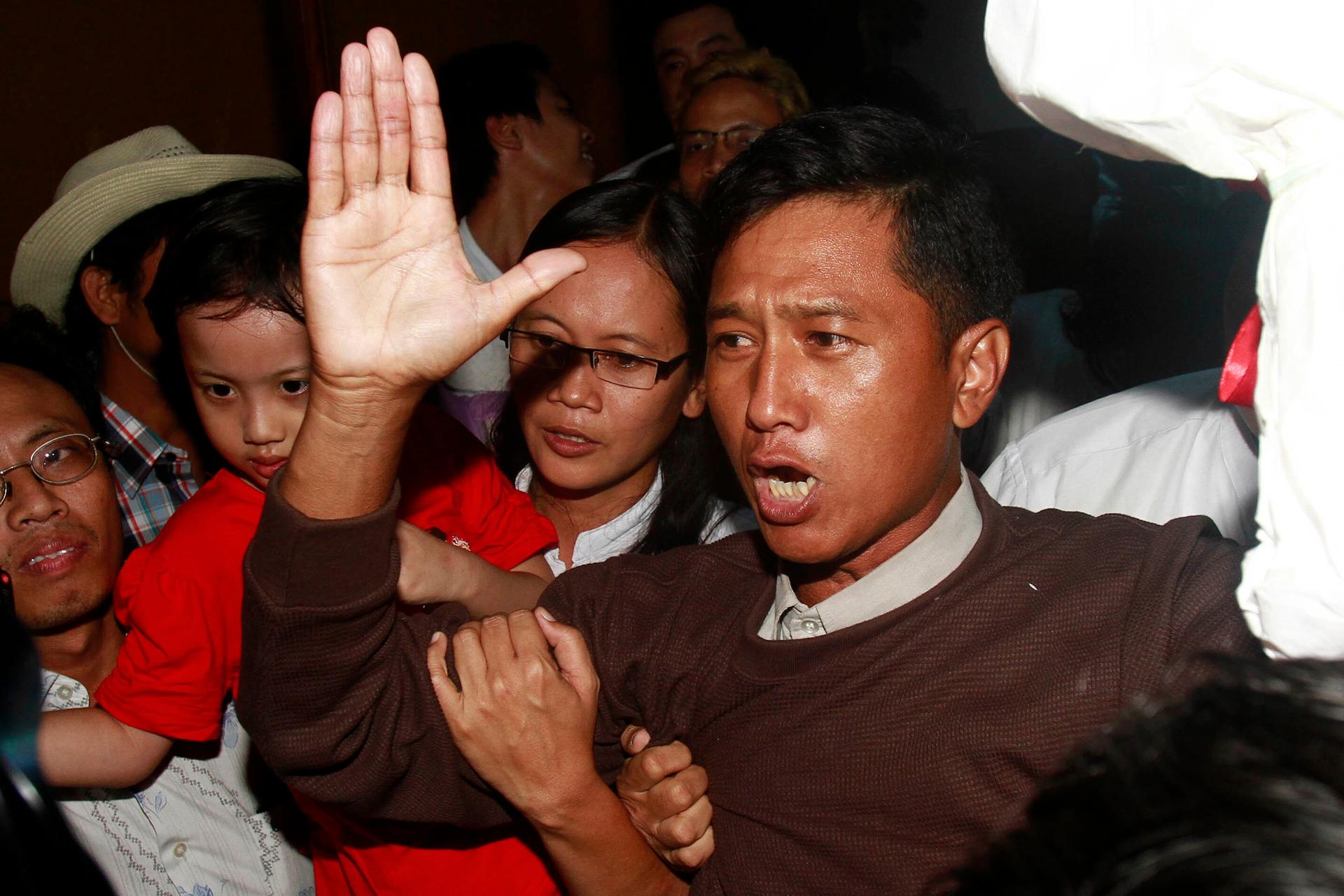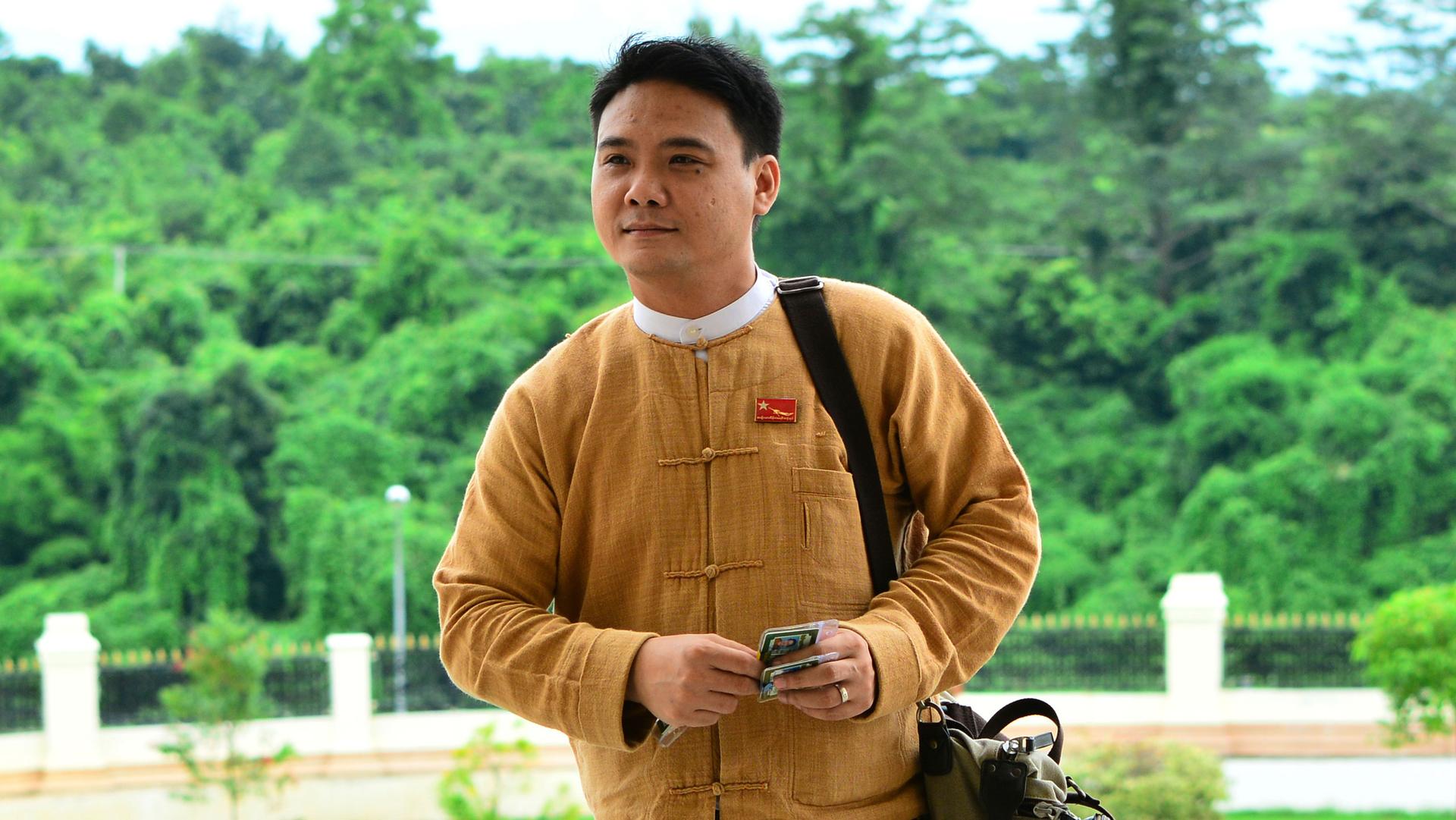Mynamar junta executes 4 pro-democracy activists to ‘instill fear,’ Radio Free Asia editor says
Myanmar’s government confirmed Monday it had carried out its first executions in nearly 50 years, hanging a former lawmaker, a democracy activist and two other political prisoners who had been accused of a targeted killing after the country’s military takeover last year.
They are the first executions in Myanmar in more than three decades and the move is seen as the junta’s latest attempt to instill fear in the resistance movement there.
Matthew Pennington, a senior managing editor at Radio Free Asia, said that two of the four are very prominent pro-democracy figures in Myanmar, while the other two are lesser-known figures.
Kyaw Min Yu, a 53-year-old democracy activist known as “Ko Jimmy,” was renowned as a student activist during a democracy uprising back in 1988, which was a seminal event in Myanmar’s history, Pennington said. When democracy emerged in Mynamar about 10 years ago, Ko Jimmy became increasingly prominent as a reconciliation figure.
And Phyo Zeya Thaw, 41, was a former hip-hop star turned lawmaker in 2012. He was a close associate of Myanmar’s famous civilian leader, Aung San Suu Kyi.
“[They] were accused of ties with a shadow government, the national unity government, which was … set up by lawmakers in the former parliament who were ousted in the coup. And also ties with civilian militia. They were said to have ordered attacks on police and onto targets,” Pennington explained.
Their trials took place in secret military courts.

“I think people are going through such an intense conflict. There are airstrikes happening in conflict zones. There are many thousands of villages being displaced. It’s sort of reaching a point where people have nothing to lose.”
The other two executed, Hla Myo Aung and Aung Thura Zaw, were convicted of torturing and killing a woman in March 2021 who they allegedly believed was a military informer.
There’s been widespread condemnation over the executions, including a statement from the United States. The UN human rights chief Michelle Bachelet called it “a cruel and regressive step.”
Pennington expects the junta to double down on its position againsts dissidents as it faces strong resistance across the country from civilian militia groups and various ethnic groups who have also sustained casualties.
Information out of Myanmar has been difficult to access. But on Monday, according to Radio Free Asia sources, someone unfurled a banner from a bridge in Yangon that read, “Get ready to pay the bloody debt,” which sounded like a call to arms from activists who were in Myanmar’s main city.
Radio Free Asia reached out to the military to get their views, but they got no response.
According to a state-run newspaper, the four were executed “in accordance with legal procedures” for directing and organizing “violent and inhuman accomplice acts of terrorist killings.” It did not say when they were hanged.
Further executions could be likely, Pennington said.
“It would certainly be a sort of tactic and strategy of instilling fear. But whether that would work or not is really up for debate, because I think people are going through such an intense conflict. There are airstrikes happening in conflict zones. There are many thousands of villages being displaced. It’s sort of reaching a point where people have nothing to lose.”
Related: Myanmar revolutionaries seek $1 billion frozen by the US
AP contributed to this report.
